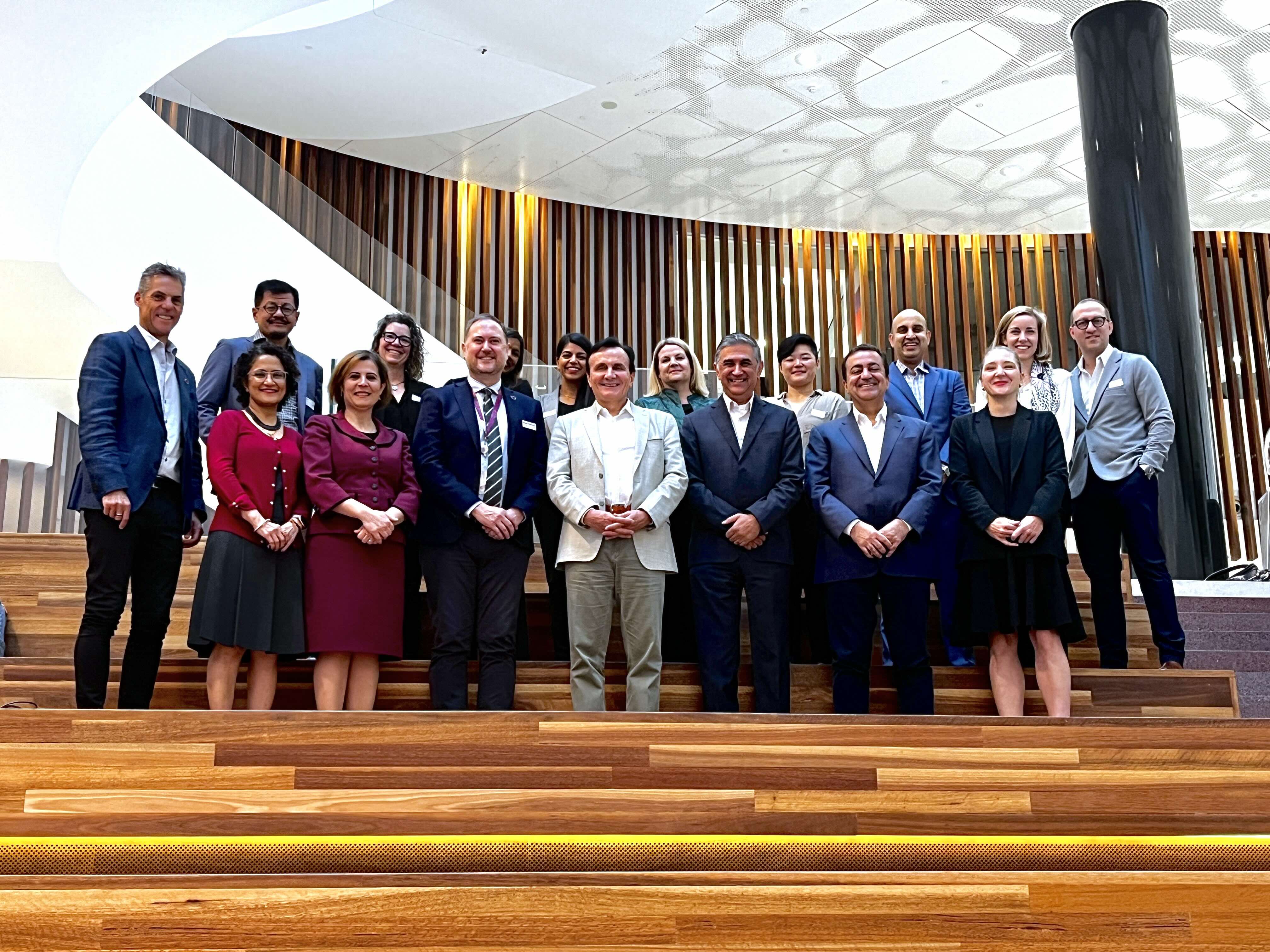Boosting Australian access to advanced cancer therapies
20 February 2024

Leaders of global biopharmaceutical company AstraZeneca and Peter MacCallum Cancer Centre experts are collaborating to expand the access that Australians have to cancer treatments through world-leading clinical trials.
AstraZeneca’s oncology research leadership team are visiting Melbourne over two days to meet with Peter Mac’s globally renowned scientists, oncologists and researchers.
Peter Mac is one of nine members of the AstraZeneca Partners of Choice Network, which is focused on harnessing the power of the collective intelligence to improve patient outcomes. Peter Mac is the only member outside the US and Europe.
There are currently 30 clinical trials for cancer therapeutics being offered at Peter Mac through this partnership and Peter Mac Investigators have recruited the first global participants in three AstraZeneca oncology trials.
These trials range from Phase I, first-in-human trials of emerging cancer treatments through to pivotal Phase III registration trials, assessing drug safety and effectiveness as a final step before drugs can be considered to enter routine clinical use.
Associate Director Clinical Research and Head of Peter Mac’s Phase I/Early Drug Development Program Professor Jayesh Desai said the partnership with AstraZeneca provide access to treatments with remarkable new ways of working.
“Peter Mac’s clinical trials program investigates treatments on the cutting-edge of cancer care,” he said. “They aim to set the standard of the future and to ultimately benefit Australians with cancer.”
Susan Galbraith, Executive Vice President, Oncology Research and Development for AstraZeneca, said the international collaboration was harnessing the power of the collective experience and insight within the Peter Mac and AstraZeneca teams to address complex scientific questions for the benefit of patients.
“We focus on attacking cancer from multiple angles, harnessing the power of combinations to drive deeper responses and increasing our understanding of the disease, all with the aim of developing transformative treatment regimens. Our collaboration with Peter Mac will help identify new opportunities to advance the next wave of cancer treatments,” she said.
New therapies include antibody drug conjugates, or ADCs – a new wave of therapies for treating cancer. ADCs can deliver chemotherapy agents directly to cancer cells, with the aim of reducing side effects for those being treated with the drug.
Peter Mac Medical Director of Medical Oncology Professor Linda Mileshkin is leading a Phase I AstraZeneca trial of a treatment that targets tumours with a marker called B7-H4. Because B7-H4 has been identified on cancer cells in a large proportion of patients screened, if successful, the treatment has the potential to help many people with different cancers, by targeting and killing cancer cells.
CAR T-cell therapy is an individualised type of cancer treatment that is already approved for some blood cancers, while solid tumours have been harder to target with this treatment. Peter Mac will soon commence a Phase I clinical trial assessing CAR T-cell therapy as a potential treatment for prostate cancer. This first-in-human trial will be led by Associate Professor Ben Tran.
Peter Mac Consultant Medical Oncologist Professor Sherene Loi is also playing a leading role in the clinical trials of new molecules being investigated for the treatment of breast cancer. Each clinical trial helps these expert clinicians understand more about the disease which in turn opens opportunities to broaden their research into other types of cancer.
The 30 AstraZeneca trials active at Peter Mac are comprised of 13 Phase I, five Phase II and 12 Phase III clinical trials.
Contacts:
For more information contact the Peter Mac Communications team on 0417 123 048.
About Peter Mac
Peter MacCallum Cancer Centre is a world leading cancer research, education and treatment centre and Australia’s only public health service dedicated to caring for people affected by cancer.
